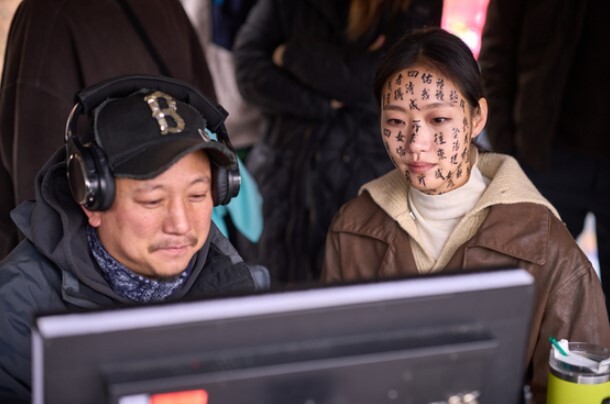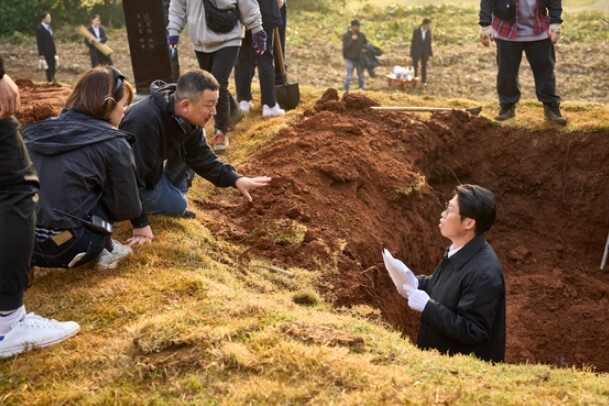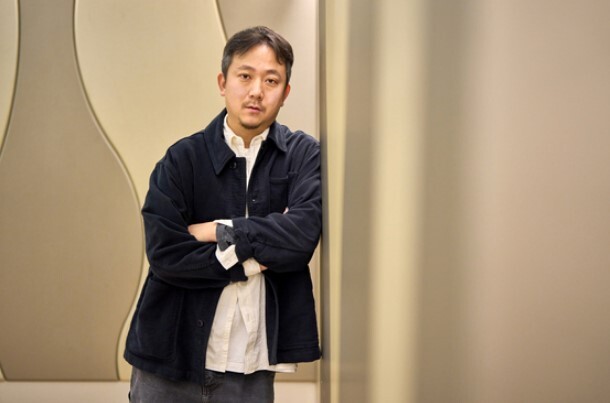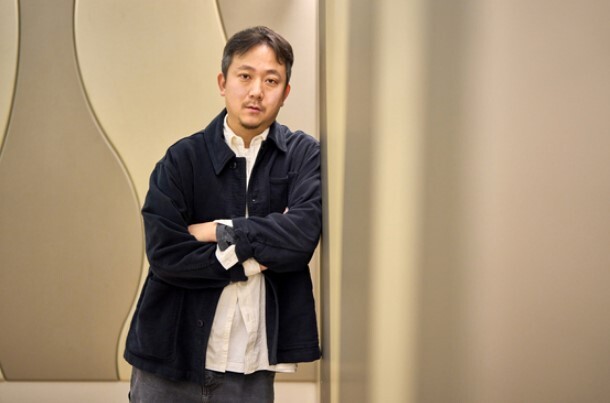Courtesy of SHOWBOX
 |
| ▲ A behind-the-scenes image from ″Exhuma″ / Courtesy of SHOWBOX |
"Exhuma," directed by Jang Jae-hyun, continues to dominate the Korean box office, nearing the milestone of selling 10 million tickets. Despite the film's success, Jang maintains a composed demeanor, attributing the achievement to his lifelong dedication to the occult genre rather than focusing on public reception.
Jang, recognized as Korea's only director specialized in the occult genre, expressed his primary focus on creating films that align with his personal interests. "Exhuma" marks his third and most successful film, following "The Priests" (2015) and "Svaha: The Sixth Finger" (2019), all centered around occult themes.
 |
| ▲ A behind-the-scenes image from ″Exhuma″ / Courtesy of SHOWBOX |
While his previous works explored various religions, "Exhuma" primarily delves into shamanism and feng shui, with a storyline revolving around the relocation of a haunted grave. Jang aimed to prioritize entertainment value in "Exhuma," ensuring that 95 percent of the movie delivered pure entertainment within the thriller genre.
The film's narrative intertwines supernatural elements with historical trauma, particularly from the Japanese colonial period (1910-1945), eliciting discussions among viewers regarding hidden references, such as significant dates found on license plates.
Jang emphasized the importance of density in each scene, incorporating elements to enhance the overall solidity of the film. While not intending to evoke specific sentiments or criticisms, Jang acknowledged the significance of addressing historical truths and acknowledging past traumas.
 |
| ▲ Director Jang Jae-hyun / Courtesy of SHOWBOX |
Regarding the possibility of a sequel, Jang expressed openness but stressed the necessity of a compelling storyline over commercial success. He also entertained the idea of a drama series featuring the four lead actors.
Reflecting on the film's success, Jang highlighted his dedication to the screenplay and drew inspiration from classic horror films such as "The Exorcist" (1973) and "Bram Stoker's Dracula" (1992). He expressed gratitude for the increased turnout in theaters post-pandemic, emphasizing the importance of shared emotions and enthusiasm toward Korean cinema.
Sayart
Kang In sig, insig6622@naver.com




